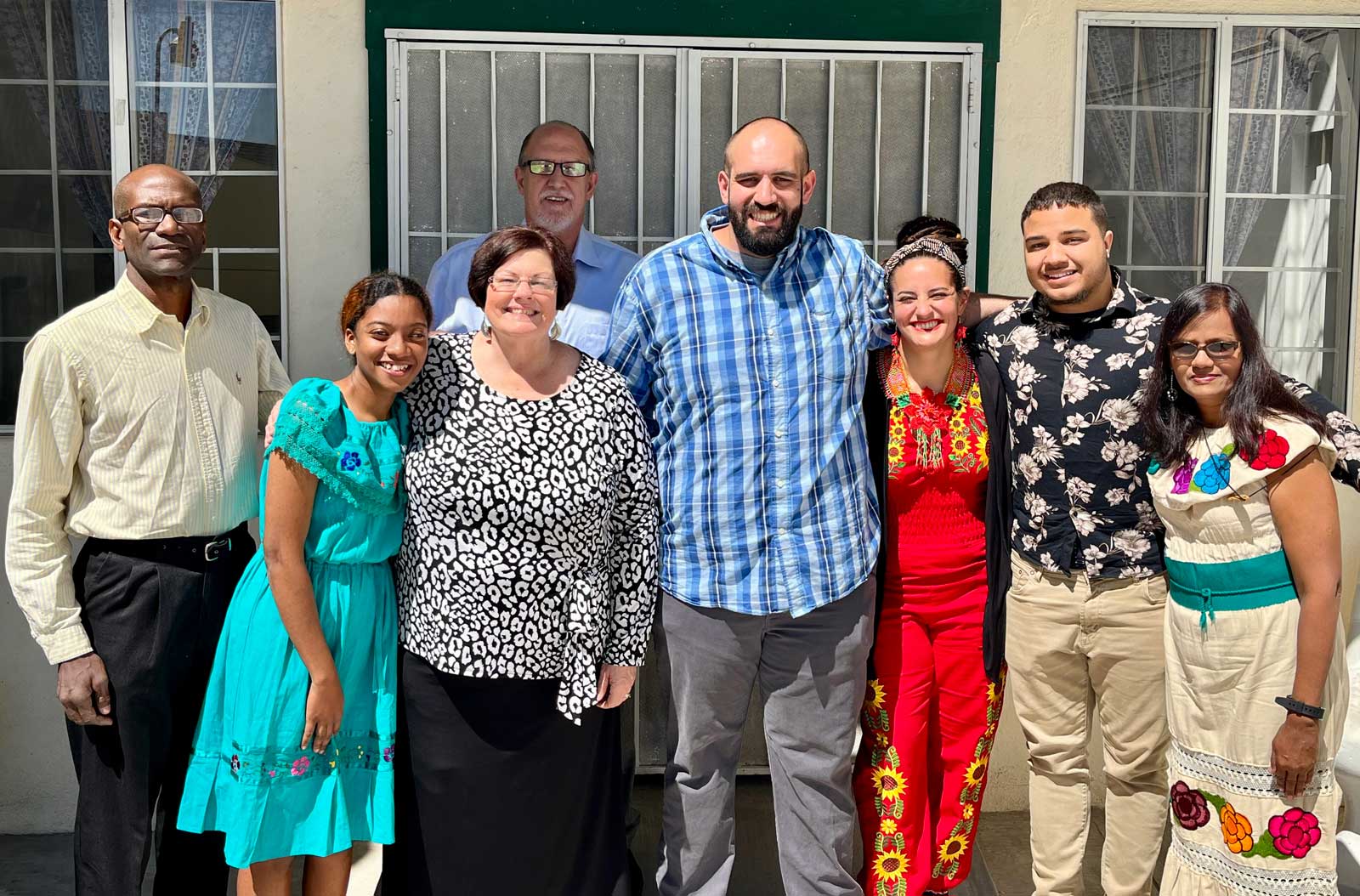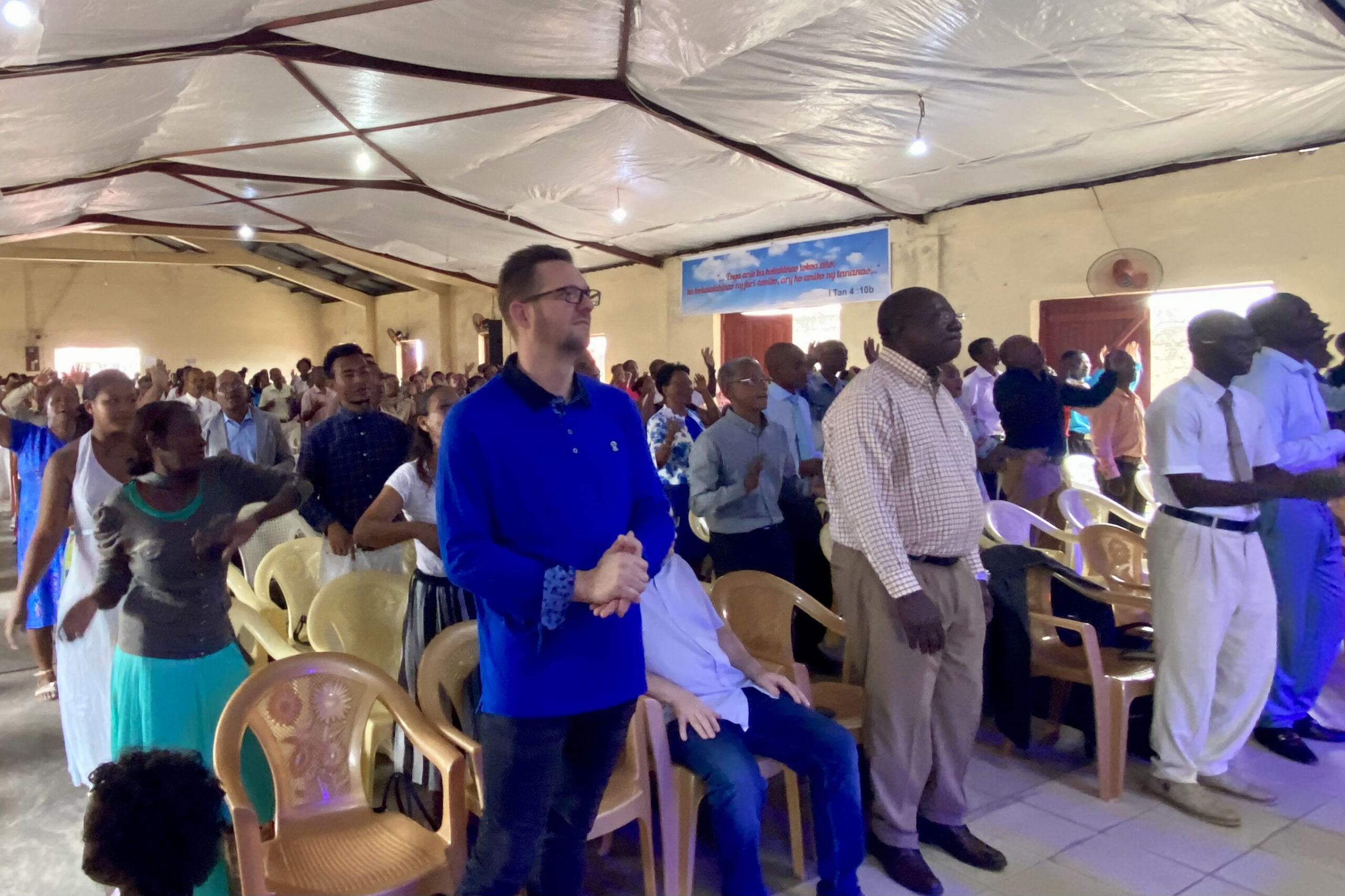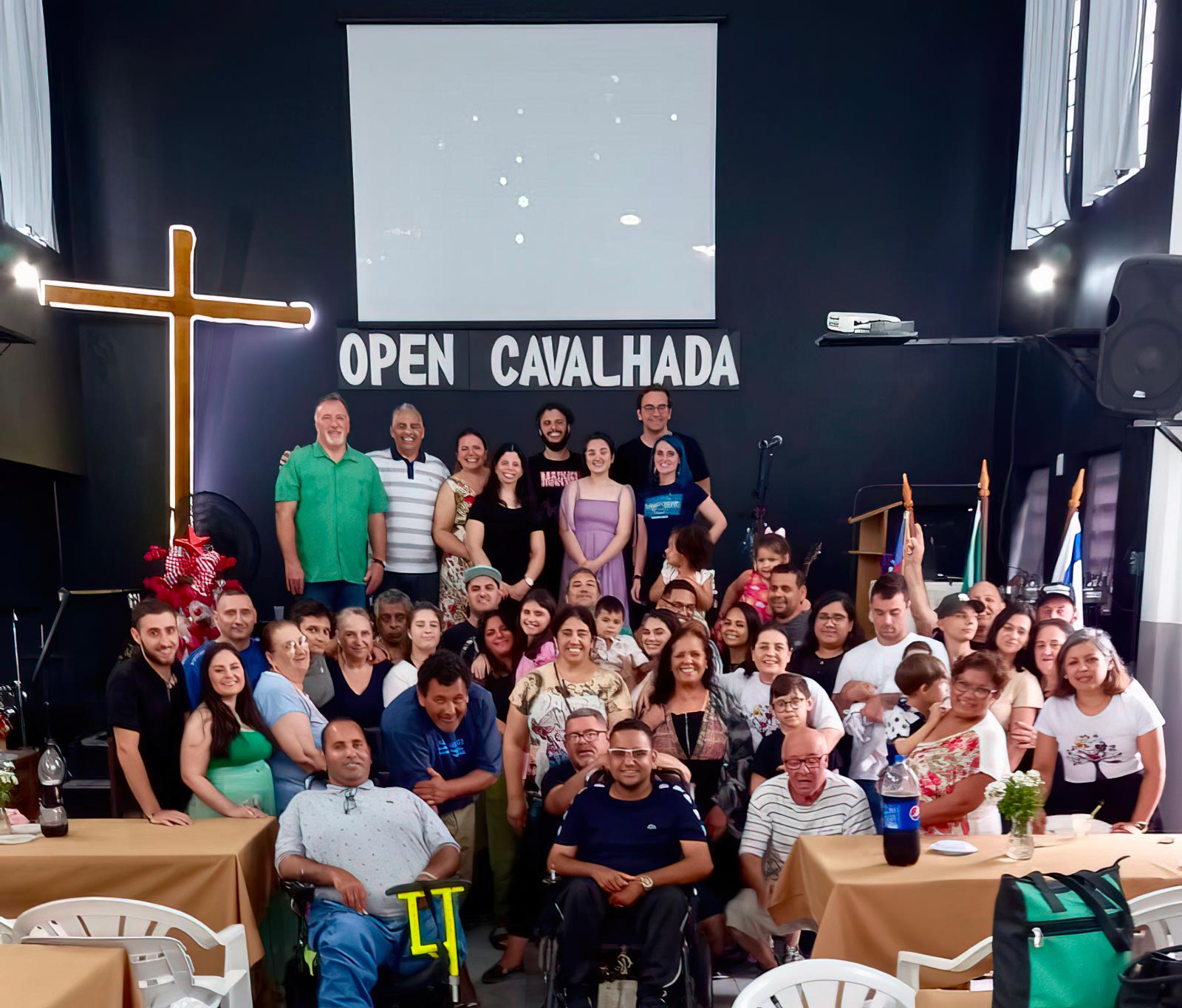Around the World
The Day I Learned to Read Scripture through African Eyes
Published
3 years agoon
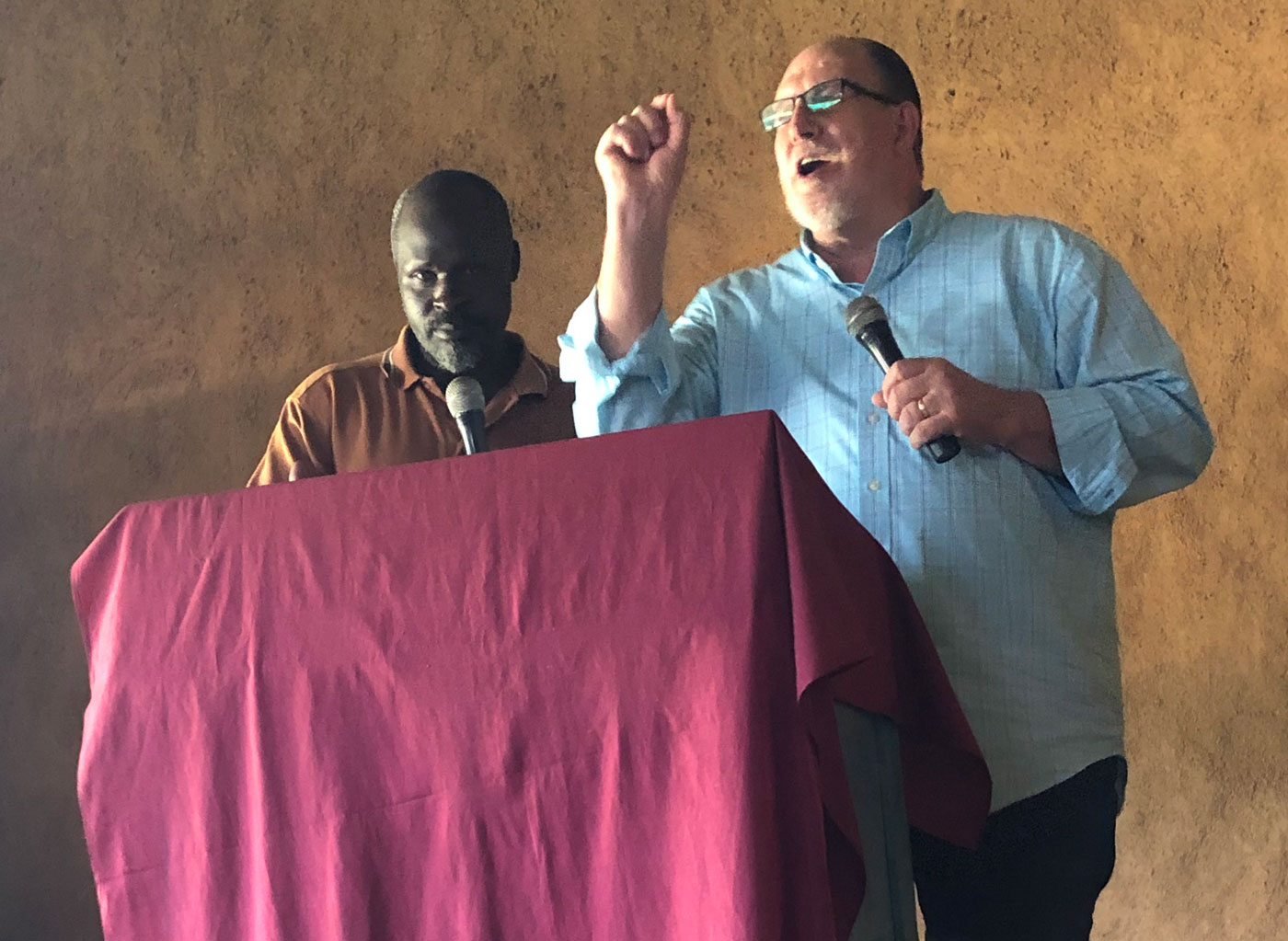
By Michael Lumbard
A Google maps search could not help me find the church I was standing in or even the road it was on. All I knew was that we were thirty minutes outside of Kakamega, Kenya. For over an hour worship had permeated the rural community from inside this church. This little church with its dirt floors is where I began to read Scripture with new eyes.
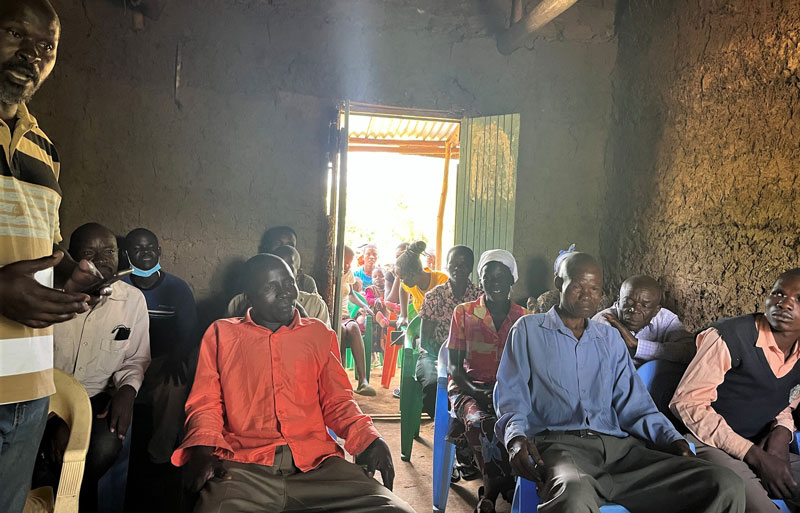
For years I have known that the area wherein I was raised, the churches I had attended, and the training which I received afforded me only a small perspective of our multifaceted and multicultural God. I knew that God loves culture. I even acknowledged that my reading and understanding of Scripture was shaped in part by my view of the world. Reading the book Misreading Scripture with Western Eyes by Brandon O’Brian and Randy Richards even helped me to identify and address some of my cultural blinders.
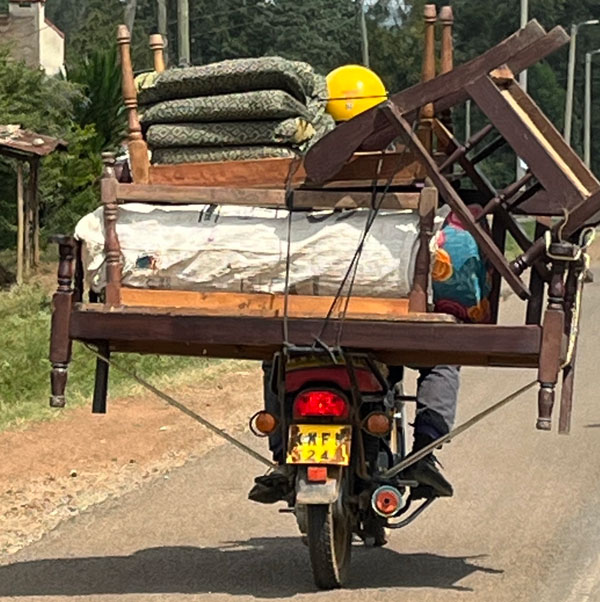
Now, serving as missionaries, my wife, Pamela, and I have been learning how to embrace a new culture. We are learning how to lay aside our own cultural biases and preferences so that we can minister effectively. This is not an easy process. It takes looking beneath the surface to discover the “whys” behind the actions of a group of people. It takes time just listening to hear the joys and pains that drive a culture. Then if you are patient enough, you will begin to see the world through their eyes. These are the same cultural eyes through which they view Scripture.
Six weeks in this country had begun to show us many aspects of Kenya’s culture. However, I realized that it would take a lifetime to truly grasp the tribal differences and traditions. It also became apparent that for some, the abuses of colonialism had tainted their view of Christianity and its first missionaries. At times the conclusion was that Christianity is simply a western religion.
For me, everything changed on this particular Saturday in this simple church that I could not even find on Google maps. The worship, the dancing, and the love for God drew me in. It was impossible to simply look on from the view of a spectator. However, the words of one song stopped me:
When Jesus came down; He came down from Heaven
When He landed; He landed in Israel
But when there was trouble; He came down to Africa
So we must praise Him; praise Him in an African way*
My mind began to race. I was already experiencing the African way of worship, but the song’s words captured my attention: “When there was trouble, He came down to Africa?” I had to process this. Joseph took his family as refugees to Egypt to escape King Herod’s edict. I always viewed this as simply the country of Egypt, but it was Africa!
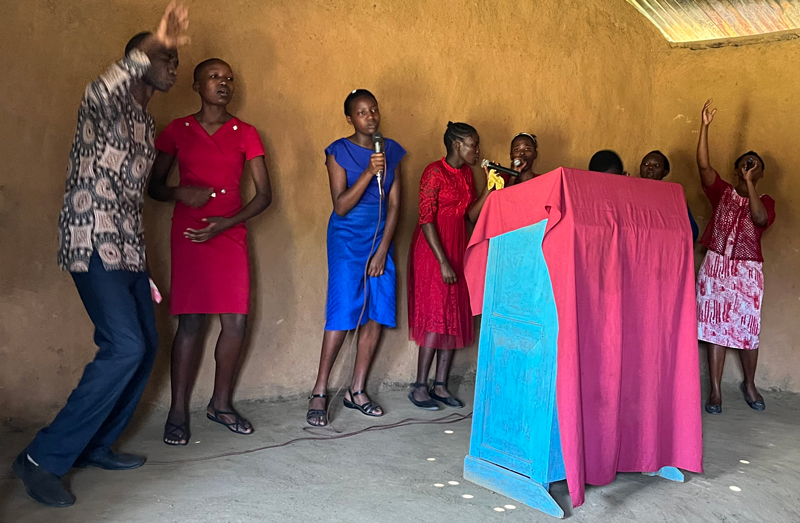
Then the thought hit me: Africa was not an afterthought to God. The promise of God to Abraham was that all nations would be blessed through him. As the worship continued, I began to recognize Africa throughout Scripture. The Queen of Sheba (probably Ethiopia) came to see King Solomon. The man who carried the cross was from Cyrene (Libya). On the day of Pentecost, people were in attendance from Egypt, Libya, and Cyrene – all in Africa. One of the early converts to Christianity was the Ethiopian eunuch (Acts 8). Then Christianity spread to Alexandria, Egypt, in the first years after Pentecost, and by 300 AD Alexandria had become one of the centers of Christianity.
The conclusion was clear to me. Before Christianity was “Western,” it was already in Africa!
By the time worship was over and it was my time to speak, I was changed. I began by acknowledging that Africa has always been in God’s heart; therefore, they needed to keep worshiping God in an African way. They shouted their approval. I was beginning to look at Scripture through African eyes.
*“Praise Him in an African Way,” by Solly Mahlango from South Africa



About the Author
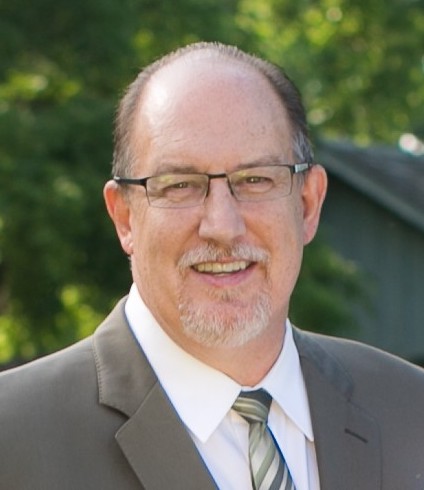
Mike Lumbard and his wife, Pamela, are directors of the School of Global Leadership, a missions training school in Trinidad and Tobago. They train future missionaries to have God’s heart for the world and God’s heart for the lost. Through on-the-job training and missions intensives, they show people how to live and minister cross-culturally. Mike and Pam are visionary leaders with a heart for the lost and hurting.

One of the great joys of this season of my life is having been asked by Vince McCarty, director of Global Missions, to serve as a “pastor” to our Open Bible missionaries. My role is to give them spiritual and emotional support as well as simply remind them of how proud we are to partner with them.
When we speak over the phone, I often ask the missionaries things like “Who’s watching out for you? What are you doing to take care of yourself? How can I be praying for you?” I ask these questions because missionaries dedicate their lives to sharing the gospel, often in challenging and isolated environments. While they pour into others, they often don’t adequately take care of themselves. As someone who has spent most of my life in the trenches of ministry, I understand how easily that can happen. But that’s where my role comes in: to encourage, support, and provide a listening ear.
Here are three things I encourage our missionaries to do (but they can serve as helpful reminders for all of us):
- Take your physical health seriously.
Our effectiveness and longevity in ministry are just as directly related to our physical health as our spiritual health. Whatever your age or medical history, chances are you could be healthier than you are right now, and there are choices that you can make (to eat better, sleep better, get your body moving, etc.) to reduce your stress. The challenge is to do them intentionally and consistently! The main culprits behind much of our depression and fatigue are a poor diet, lack of exercise, and inadequate rest. The good news is these are things that we can change.
- Start with just a few changes.
- Have a plan and stick with it.
- Do it “as unto the Lord” – integrated with your other spiritual disciplines.
“You made my body, Lord; now give me sense to heed your laws” (Psalm 119:73 TLB).
One of the biggest challenges for many in ministry is that we put all our effort into ministry, leaving too little time or energy to cultivate the relationships that breathe life back into us …
- Cultivate meaningful relationships.
One of the biggest challenges for many in ministry is that we put all our effort into ministry, leaving too little time or energy to cultivate the relationships that breathe life back into us: our marriage, our family, our mentors, and healthy friendships. For missionaries, cultural and linguistic barriers can sometimes complicate cultivating healthy relationships. Once again, our longevity in ministry is directly related to the health of our relationships. No more excuses – just do it!
- Plan social time on your calendar and keep it a priority.
- Never stop making new friends or trying new things.
- Recognize the people and activities that bring joy to your life.
“As iron sharpens iron, so one person sharpens another” (Prov 27:17 NIV).
- Be careful what you choose to think about.
We can’t choose what other people say about us or what they say to us, but we CAN choose what we allow ourselves to dwell on. Don’t waste time or energy beating yourself up or constantly worrying about what other people think about you. Ultimately, we are ALL inadequate unless we learn to cooperate with God’s purpose – and He will give us everything we need to fulfill that purpose. So much of the battle we face in ministry is won or lost in our thinking. But bringing God into the equation changes everything!
- Feed your brain with truth.
- Recognize the lies of the enemy.
- Choose to think about what GOD SAYS!
“Don’t copy the behavior and customs of this world… but let God transform you into a new person by changing the way you think” (Romans 12:2 NLT).
Let me encourage you today to take a moment and check in with a missionary or minister. A simple text, call, or email could be just the encouragement they need today. We’re all in this together, and we were never meant to do it alone. I am so proud and grateful to be a part of our Open Bible family.
About the Author
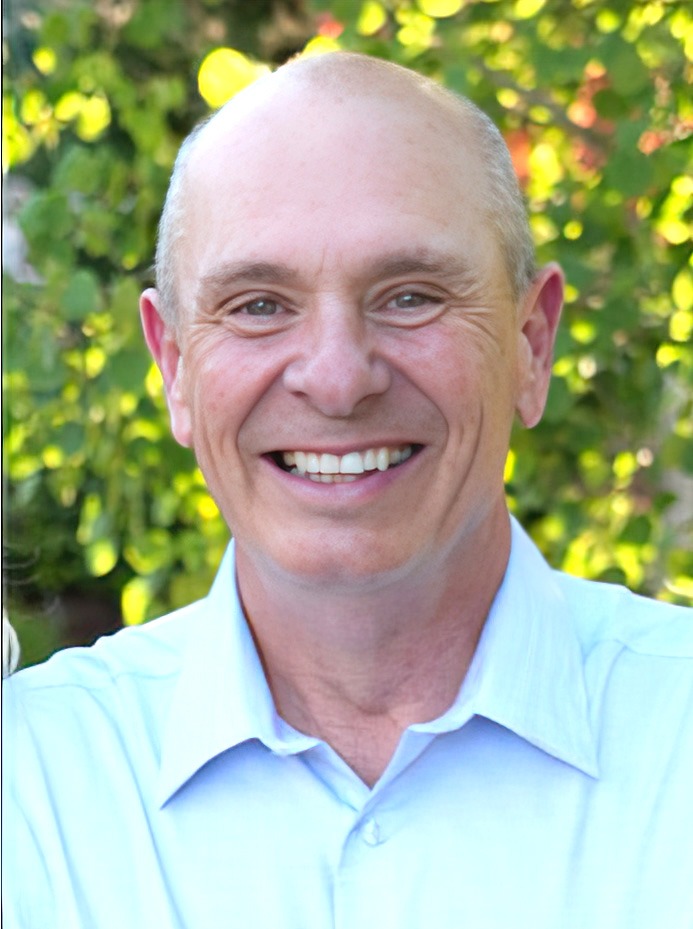
By Monte LeLaCheur
Monte LeLaCheur pastored Turning Point Church in Spokane, WA, for twenty-nine years after working there as his dad’s assistant for the previous fifteen years. Today he serves as Open Bible’s pastor to missionaries and as a Pacific Region Shepherd. He and his wife, Amy Jo, also have a Christian Counseling practice. Connect with them at www.insightscoaching.org
Around the World
Papua New Guinea: A Testimony of God’s Faithfulness
Published
6 months agoon
December 20, 2024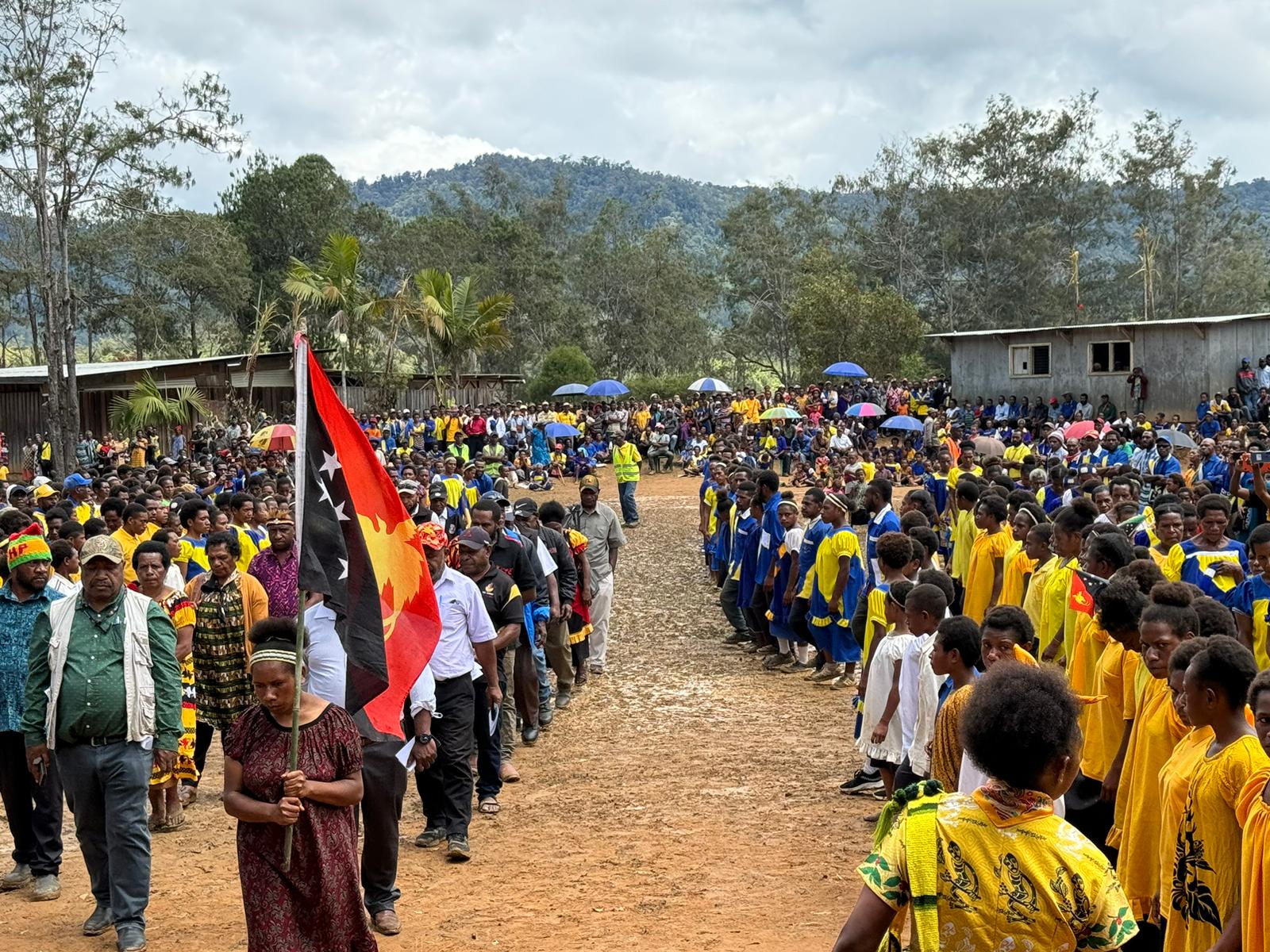
In September of 2024 former missionary Mark Brandt and I met at the San Francisco airport to fly to Papua New Guinea. We traveled to participate in the 50th anniversary of the Open Bible Churches there and attend the National Convention at the Open Bible Ivingoi Mission Station in the Eastern Highlands.
After taking three different planes and enduring some unexpected delays, Mark and I arrived at the airport in Goroka, Papua New Guinea. Field Director Joshua Essy and several members of the National Board of Open Bible Churches were there to greet us.
The National Convention and 50th Anniversary Celebration began Monday evening and was attended by more than 2,000 people
We loaded into three different vehicles and even had a police escort vehicle as we began our four-hour drive up the mountainous road that would take us to the Ivingoi Mission Station. When we arrived, the main entrance was surrounded by hundreds of people, standing on both sides of the road to welcome us. One doesn’t really feel worthy of such a reception, but we were so honored. When Mark got out of his vehicle, people flocked to greet him because he had not been back to PNG for 23 years. It was awesome to see how much they loved him and his family.
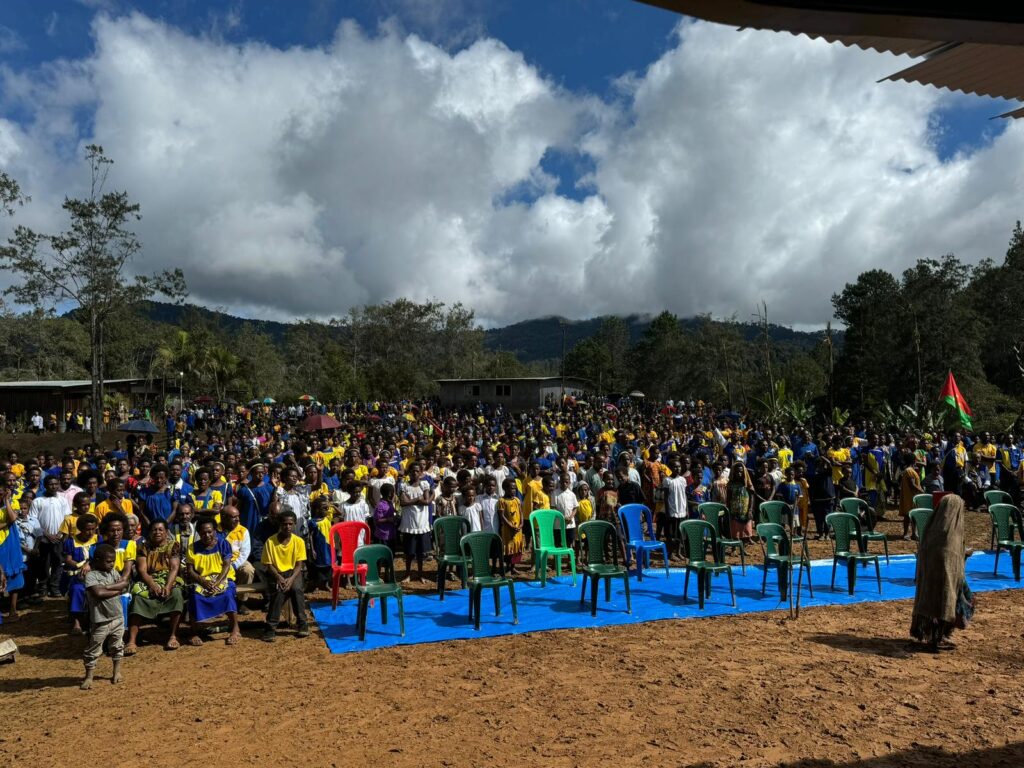
The National Convention and 50th Anniversary Celebration began Monday evening and was attended by more than 2,000 people. Attendees sat on the ground surrounding the platform because there was no building big enough to house everyone.
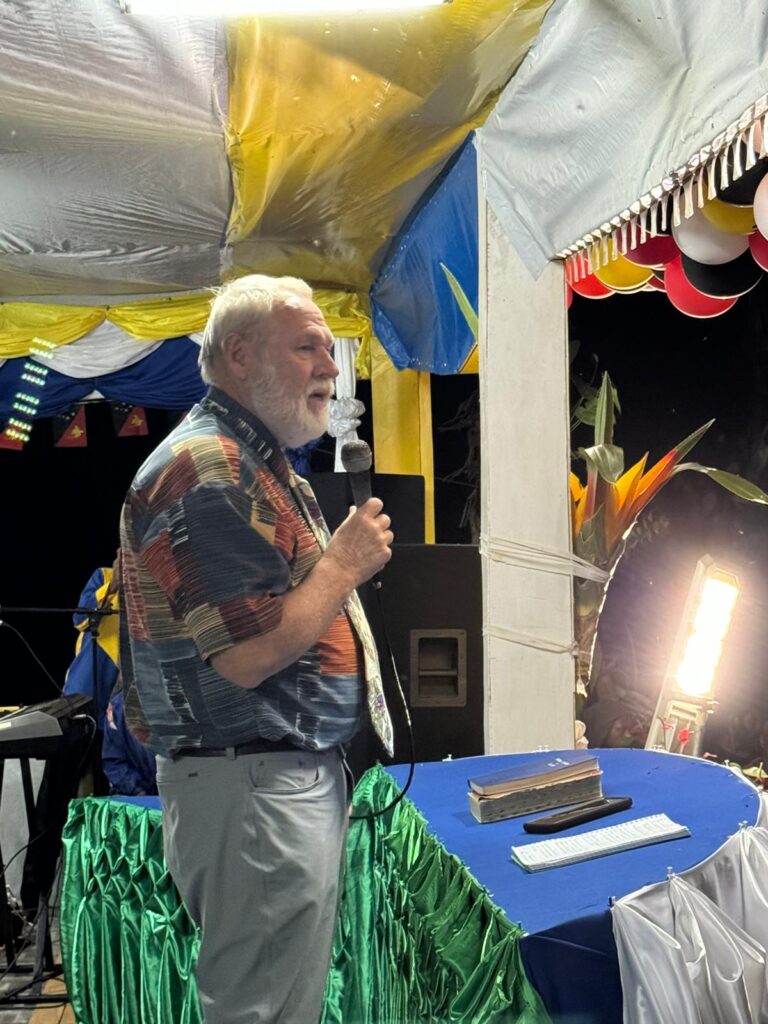
As I looked at this great crowd of God’s people, I thought of Psalm 89:1 that says, “I will sing of the Lord’s great love forever; with my mouth I will make your faithfulness known through all generations” (NIV). God is faithful to bless and sustain His work. Now in Papua New Guinea we were able to see the fruit of that faithfulness in thousands of lives that have been transformed by the power of the Gospel.
On Tuesday, they held a special ceremony to welcome all local government dignitaries, business professionals, and international guests.
The next day we visited the Open Bible Mission clinic, which receives staff and ambulance funding from the Papua New Guinea government. Several years ago, Global Missions sent funds to build a new maternity ward. Today, the clinic serves over 20,000 patients a year; it is the only health clinic for hundreds of miles and is surrounded by several villages.
The growth and expansion of the Open Bible work there is a wonderful tribute to all the missionaries, nurses, and nationals who have sacrificed so much and have gone above and beyond the call of duty for the Lord.
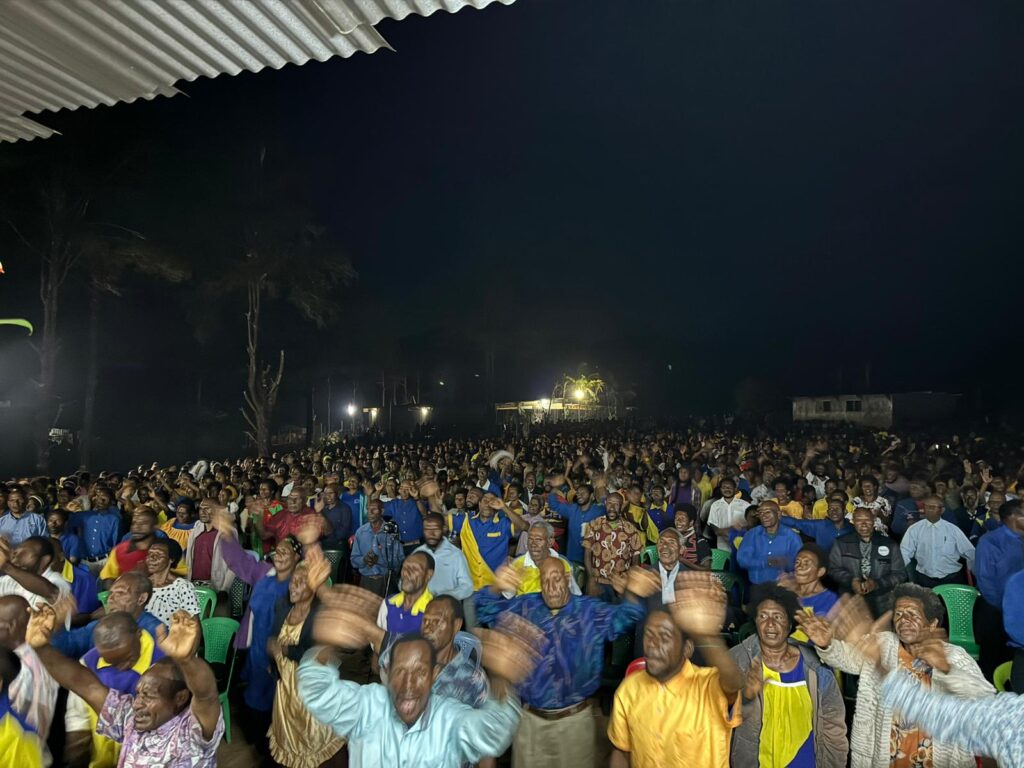
We now have thirty-seven Open Bible Churches in Papua New Guinea, and five new outreaches are being started. The growth and expansion of the Open Bible work there is a wonderful tribute to all the missionaries, nurses, and nationals who have sacrificed so much and have gone above and beyond the call of duty for the Lord. Now, with such a solid foundation, the work of Open Bible Churches in Papua New Guinea is poised for tremendous growth.
It was an honor to participate in the celebration of the 50th Anniversary and the PNG National Convention of Open Bible Churches. Additionally, it was a privilege to have former missionary Mark Brandt accompany me on this trip. I congratulate President Joshua Essy for his leadership and the leadership of the entire National Board. I know that the work of Open Bible will continue to grow and prosper under their guidance and direction.
About the Author
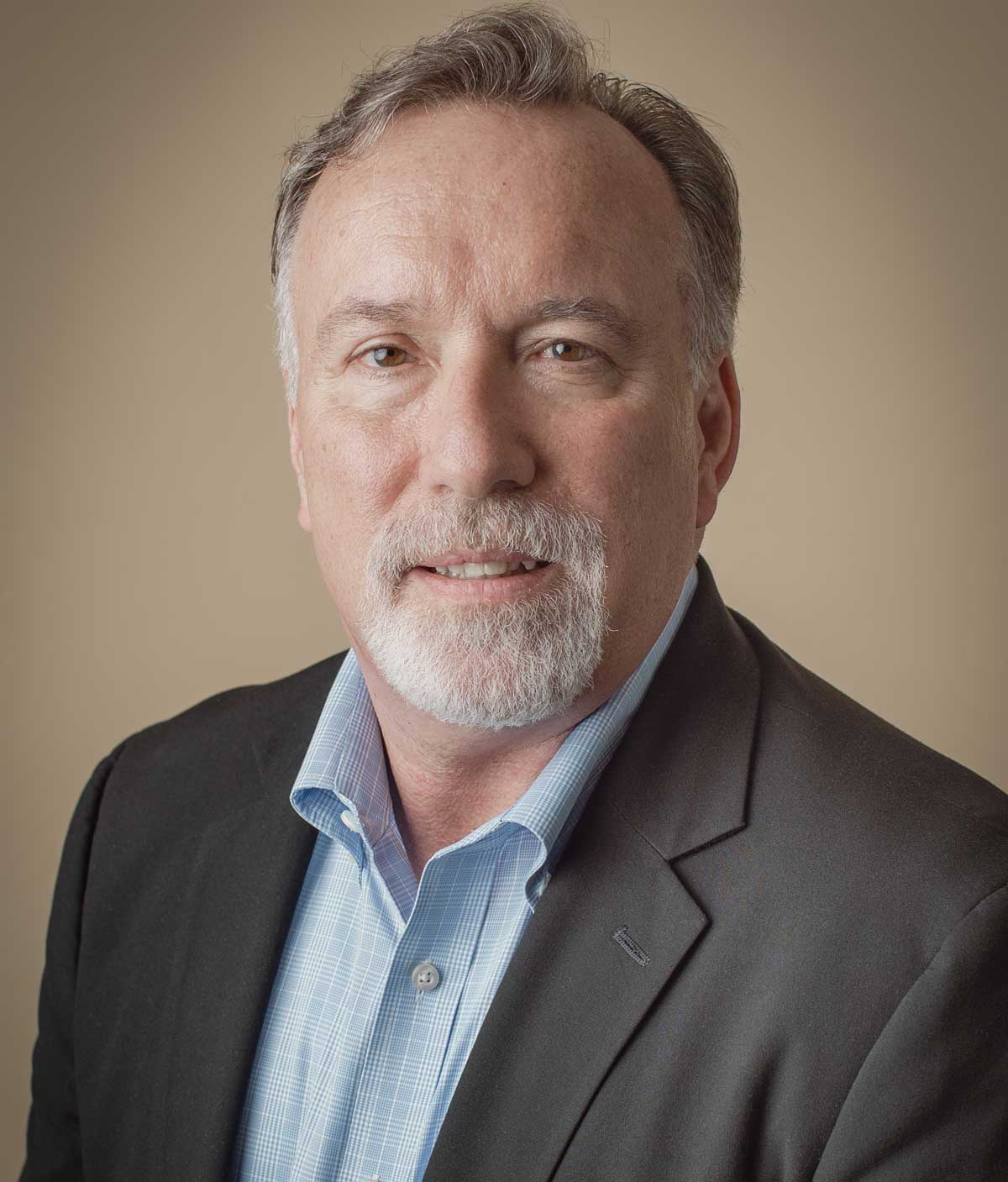
Vince McCarty
Vince McCarty serves as the Executive Director of Global Missions, giving oversight to Open Bible’s work in 55 countries of the world. He is thankful for the great missionary staff and all the national leaders he has the opportunity to serve with. He would like us to remember that the Great Commission is too big for anyone to accomplish alone and too important not to try to do together.
Around the World
Spiritual Renewal: The Road to Spiritual Awakening
Published
7 months agoon
November 1, 2024
My wife Lois and I have been working in the ministry for forty-one years, and we have seen God do so many amazing things. Our lives have been changed as we have witnessed major revival in Spain and Argentina and seen God move in countries across the globe. During the past seventeen years as I have served as Director of Global Missions, we have seen the Lord call many new people to the mission field, we’ve started new ministries, and we have begun brand new works in several countries.
Despite the beauty of these experiences, serving so many years without taking a break started to take its toll on me. I would read Matthew 11:28 (NIV), “Come to me, all you who are weary and burdened, and I will give you rest,” and I would think, “Well, I don’t feel very rested; I feel tired.”
Our Creator knows that our souls need rest; they need time to pull away and unplug. God created the Sabbath, and humans were designed to have times of Sabbath when we allow our minds, bodies, and souls to pause and breathe.
In the ministry of Global Missions, I’d needed to make several tough decisions and navigate intense challenges, and I had not allowed my mind, body, and soul to assimilate afterward. When we are working for the Lord, whether in the pastorate or in other leadership positions, we feel the need to press on. In a culture where busyness is an obsession and being still is seen as being apathetic, rest is often equated with laziness.
Humans were designed to have times of Sabbath when we allow our minds, bodies, and souls to pause and breathe.
Without rest, however, we can miss the presence of God. He invites us into rest so that we might know Him more deeply. As Mark Buchanan says in his book, The Rest of God, “Sabbath is both a day and an attitude to nurture such stillness. It is both time on a calendar and a disposition of the heart.”
In May of this year, the board of Global Missions allowed me to take a five-week sabbatical. The first week was an adjustment, but as the days progressed, I felt my hunger for God return. I spent long stretches reading the Word and praying (which at this stage involved more listening than talking). As I finally processed the challenging season I had experienced, I felt a new peace sweep over me. I regained focus and ambition for the ministry and remembered what I already knew: God was always in control of everything.
Today in the Church we crave revival, longing for spiritual awakening. But to have a spiritual awakening, we need to first have spiritual rest and renewal, which starts by taking a pause (sabbatical). Because the truth is, the work is never done (or never done to our satisfaction). There will always be more work than we can finish. When we rest in God, we are able to encounter the parts of Him we have been missing, which is a gift.
When I was in Trinidad during April 2024 for the 70th Anniversary of Open Bible Standard Churches, we attended several church services. Each time, when an invitation was given to come to the altar after the preaching of God’s Word, the people would swarm to the altar. It was so refreshing to see such a spiritual awakening, to see people so hungry for more of God. However, this time of awakening in Trinidad started after months of intercessory prayer, with people taking time to pause, seek God’s face, and listen to His voice.
God is always speaking, but we are not always listening. We fail to be intentional, forgetting to pause and connect with Him, ignoring His invitation to boldly enter His throne room and receive what we need. We fail to listen, missing His words that sometimes pierce but always heal.
Sabbatical is more than a vacation; it is a disposition of the heart.
Psalm 42:1-2 says, “As the deer pants for streams of water, so my soul pants for you, my God. My soul thirsts for God, for the living God. When can I go and meet with God?” Just like the deer, if we want God to fill us, we must stop and take the time to drink His living water.
Now, as I endeavor to incorporate sabbatical into my everyday life, I try to leave work at the office and not bring it home. I know how difficult this can be for us who are in ministry, but the truth is, not everything is urgent. I don’t have to answer the email that came at 6:00 pm. Sometimes I leave my laptop at work or in my car (which is in the garage), so I am not tempted to answer anything after I get off work. Weekends belong to my family, and I try to keep those days sacred, spending time in the presence of my family and the presence of God.
Spiritual rest starts when we quiet our minds and allow God to speak to us. Sabbatical is more than a vacation; it is a disposition of the heart that keeps your life focused in the right direction. When our spirits reconnect with the Holy Spirit, we receive healing and renewal on every level, creating space for the spiritual awakening we all long for.
About the Author
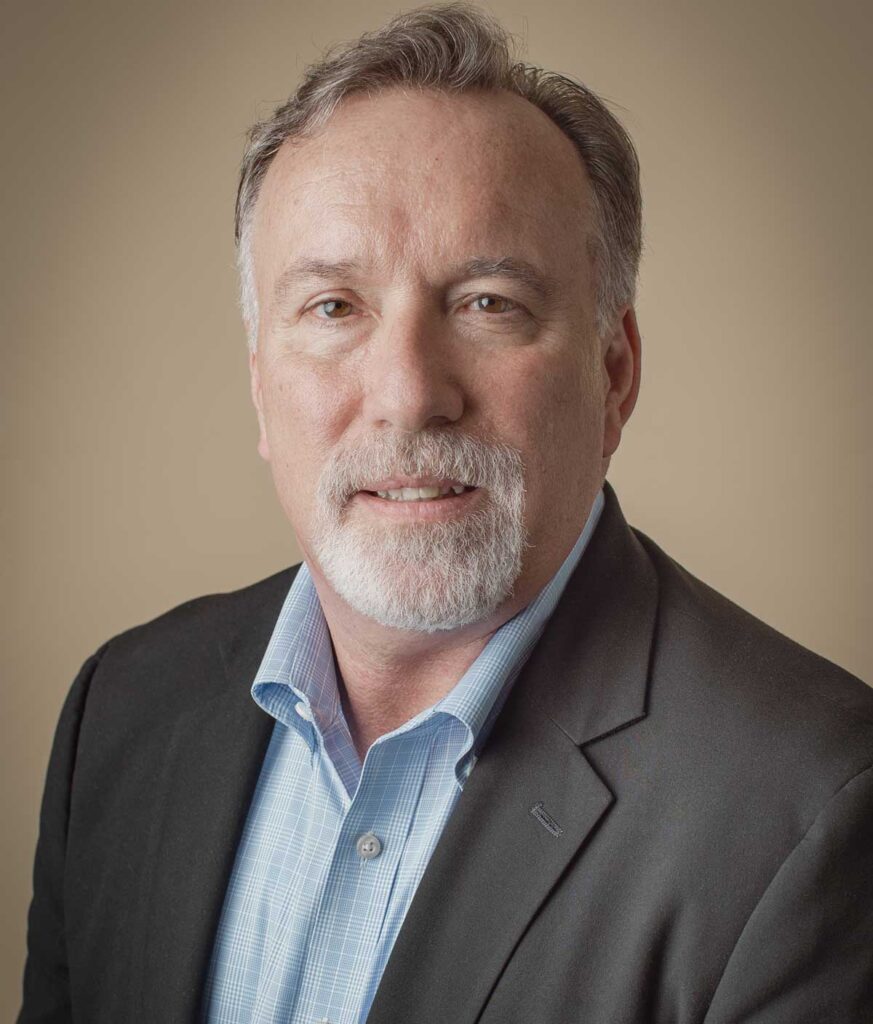
Vince McCarty
Vince McCarty serves as the Executive Director of Global Missions, giving oversight to Open Bible’s work in 55 countries of the world. He is thankful for the great missionary staff and all the national leaders he has the opportunity to serve with. He would like us to remember that the Great Commission is too big for anyone to accomplish alone and too important not to try to do together.


